Uproar at Trump's tweets, but Republicans mostly stay quiet
- Published
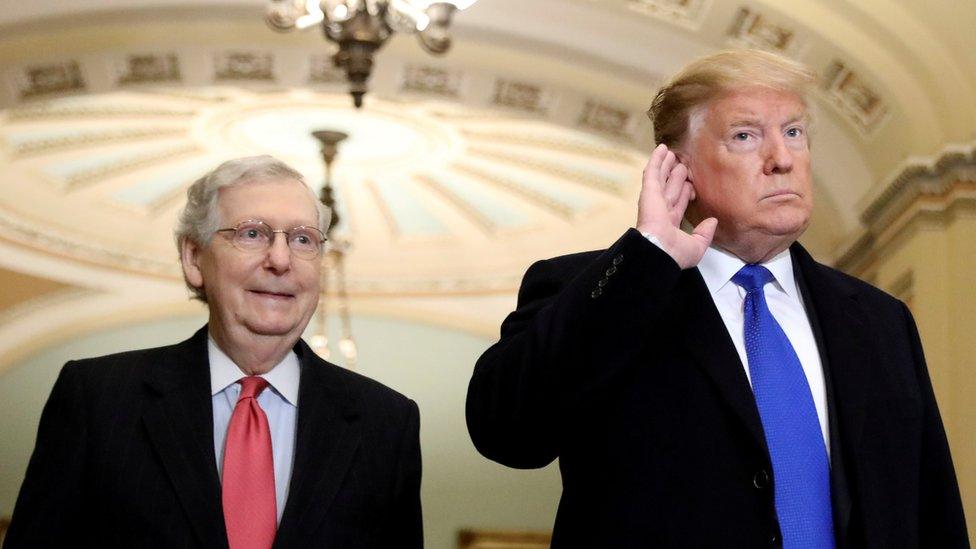
Donald Trump with Senate Majority Leader Mitch McConnell, who declined to comment on the remarks

Amid the uproar at Donald Trump's attack on four Democratic congresswomen - an attack which was widely described as racist - there was a notable silence from the president's Republican Party colleagues.
With a few exceptions, they kept quiet as the world reacted to his suggestion that the four Congresswomen - all women of colour - "go back" and "fix the totally broken and crime infested places from which they came".
All four women are US citizens; three - Representatives Ayanna Pressley, Alexandria Ocasio-Cortez, and Rashida Tlaib - were born in the US, and one - Rep Ilhan Omar - came to the country from Somalia as a child refugee.
For many, the president's remarks went a step beyond anything he had previously said, despite a long history of accusations of racism that predates his political life. The language he used called on a well-established racist trope of telling citizens from minority backgrounds to "go home".
But for a Republican party increasingly aware that its electoral fortunes are tied to the president's national appeal, his remarks did not appear to go beyond the pale - rather the pale had been moved to accommodate them.

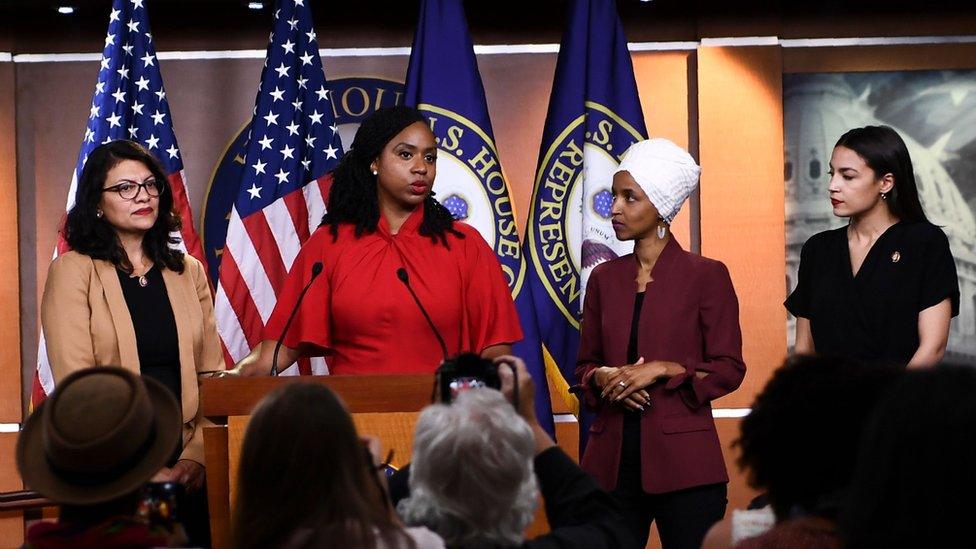
L-R Representatives Rashida Tlaib, Ayanna Pressley, Ilhan Omar, and Alexandria Ocasio-Cortez

The president's tweets, published on Sunday, read: "So interesting to see 'Progressive' Democrat Congresswomen, who originally came from countries whose governments are a complete and total catastrophe, the worst, most corrupt and inept anywhere in the world (if they even have a functioning government at all), now loudly and viciously telling the people of the United States, the greatest and most powerful Nation on earth, how our government is to be run. Why don't they go back and help fix the totally broken and crime infested places from which they came. Then come back and show us how it is done."
Leading Democrats were quick to condemn the remarks as racist. A handful of Republicans issued criticisms - Republican representative Will Hurd of Texas told CNN the comments were "racist and xenophobic"; Rep Fred Upton of Michigan said he was "appalled by the President's tweets"; Alaska Senator Lisa Murkowski tweeted: "There is no excuse for the president's spiteful comments - they were absolutely unacceptable and this needs to stop."
But the party's senior leadership and the majority of its rank and file stayed quiet or declined to call the remarks racist. Senate Majority Leader Mitch McConnell - the most senior Republican after the president and vice president - did not comment. The treasury secretary, Steven Mnuchin said: "I don't find them racist." Former Republican presidential candidate and Utah Senator Mitt Romney acknowledged that "a lot of people have been using the word", but he demurred.
The House Republican Leader Kevin McCarthy said: "The President is not a racist". "It's really kind of a socialist battle versus a thing that we believe within America," he said.
It was an illustration of how far the party had travelled since hitching its wagon to Mr Trump's star. When Mr Trump said in 2016, as a candidate, that a Mexican-American judge would be automatically biased against him because of the judge's heritage, the party's most senior figures were unsparing in their condemnation. Majority Leader McConnell jumped to the judge's defence. "This is a man who was born in Indiana. All of us came here from somewhere else," he said.

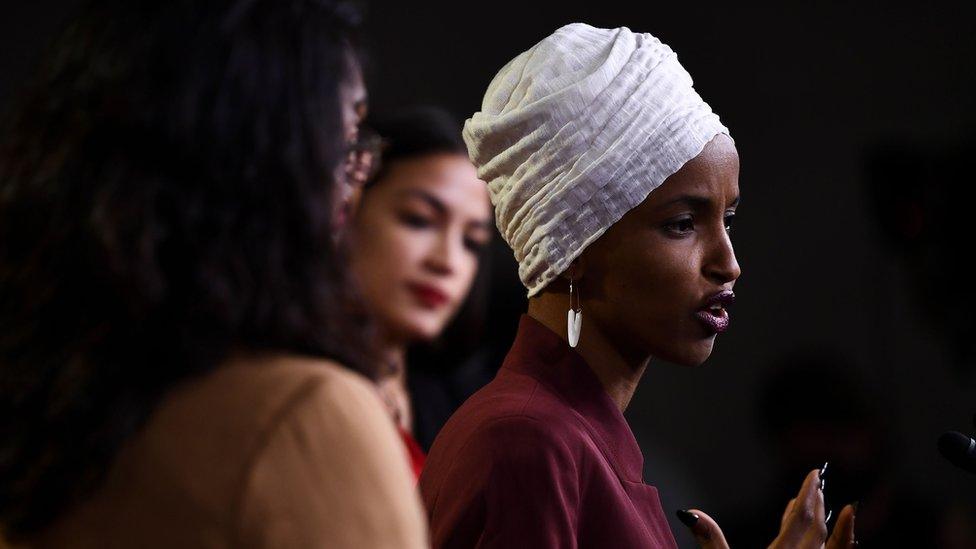
Representative Ilhan Omar speaks at a press conference with her three Democratic colleagues

Among the Republicans who did criticise the president's remarks on Monday, there was a noticeable trend: criticism of the Democratic congresswomen too.
Senator Lindsay Graham, a close ally of the Trump administration, suggested indirectly that the president "aim higher" but called the Democratic congresswomen a "bunch of communists" who "hate our own country".
Senator Pat Toomey of Pennsylvania acknowledged that the citizenship of the congresswomen was "as valid" as his own, but prefaced it by saying he "couldn't disagree more" with their views on "virtually every policy issue".
Rep Elise Stefanik of New York said: "While I strongly disagree with the tactics, policies, and rhetoric of the far-left socialist 'Squad,' the President's tweets were inappropriate, denigrating, and wrong." Senator Susan Collins of Maine said Mr Trump's remarks were "way over the line", but called the congresswomen "far-left". Mr Romney said the congresswomen's views were "not consistent with building a strong America".
The president called them "Radical Left Congresswomen" and said they should apologise to the country and to him.

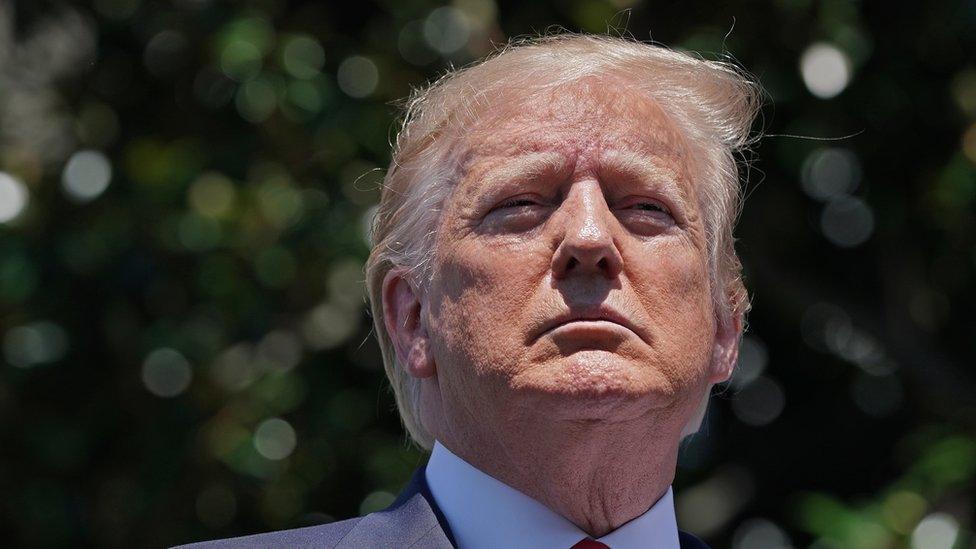
Donald Trump has a long history of being accused of racism, predating his political life

Taken together, the statements appeared to signal a Republican strategy ahead of next year's election of branding the Democratic Party and its four popular new House representatives as far-left and anti-American. Ms Pressley, Ms Ocasio-Cortez, Ms Tlaib and Ms Omar - known affectionately by fans as "The Squad" - are already a lightning rod for conservatives seeking to sow fear over a progressive shift in the Democratic Party.
There may have been other goals behind Mr Trump's remarks. He is well versed in the politics of distraction, and immigration raids he had promised on the same day were not materialising. And in his tweets he attempted to aggravate an existing dispute between the four Democratic congresswomen and their party leadership; in the end his remarks produced a show of unity between the two factions.
Whatever the aim, the relative silence from his own party's leadership over his remarks may have sent a clear signal to the president - that the party was with him in an electoral strategy that accommodated language widely regarded as racist. The president denies any kind of prejudice and has claimed several times to be "the least racist person you've ever met".
The Democratic House Speaker Nancy Pelosi on Monday announced a resolution in the House to condemn the president's remarks. Senate Minority Leader Chuck Schumer said he would introduce a similar motion in his chamber. "We'll see how many Republicans sign on," he said.
Correction: A quote from Senator Cory Gardner of Colorado was removed as it did not refer directly to the Congresswomen.
- Published12 July 2019
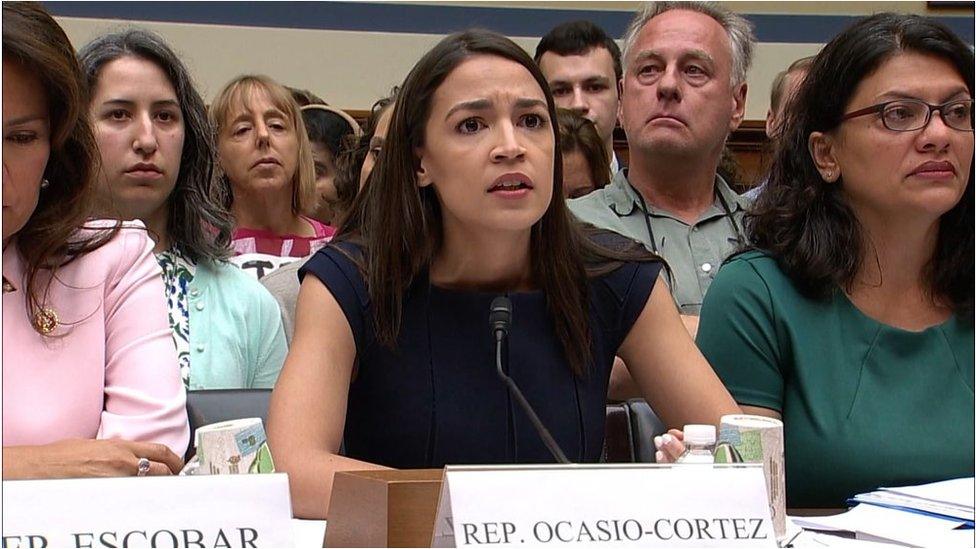
- Published2 July 2019
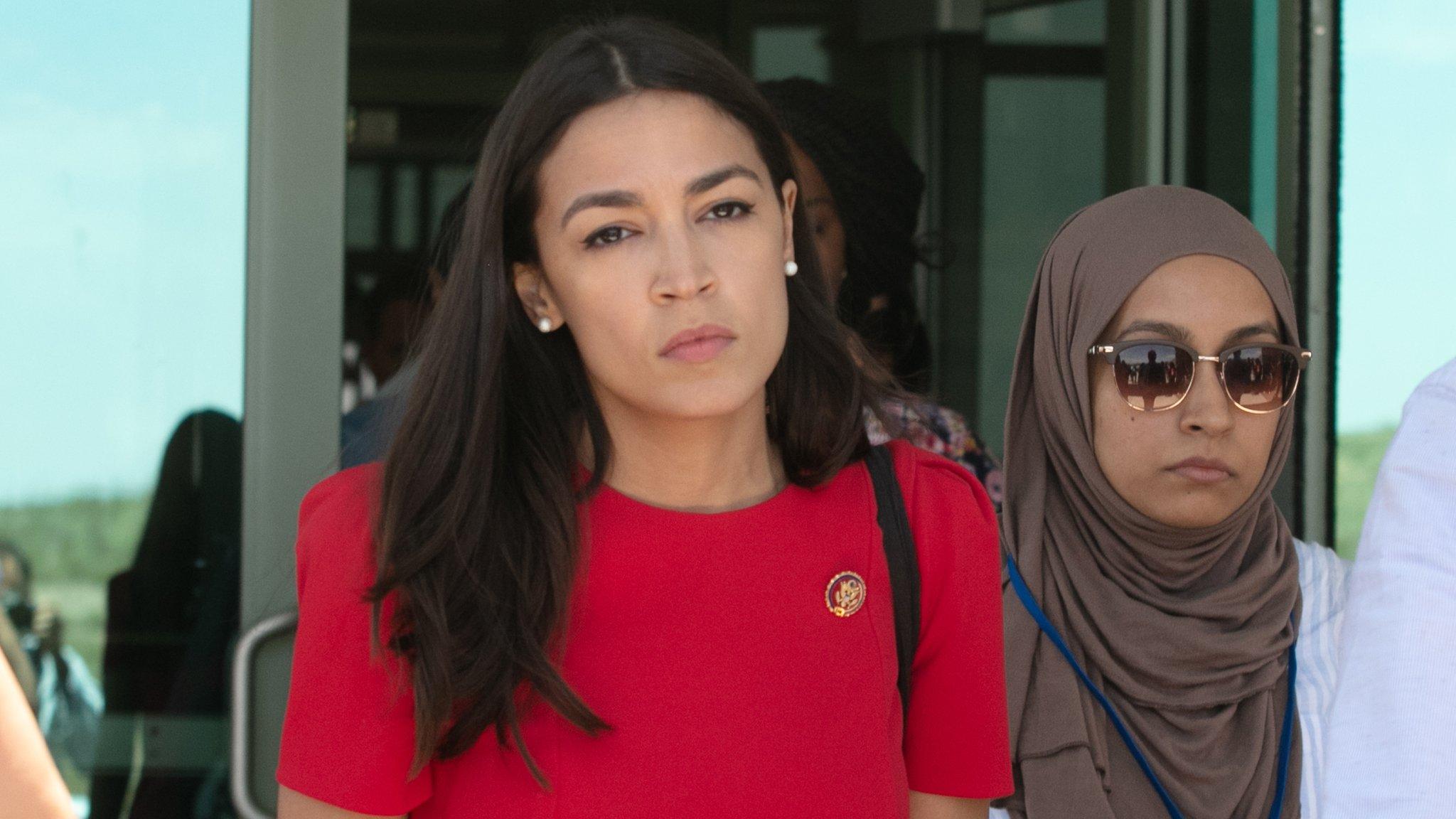
- Published14 April 2019
